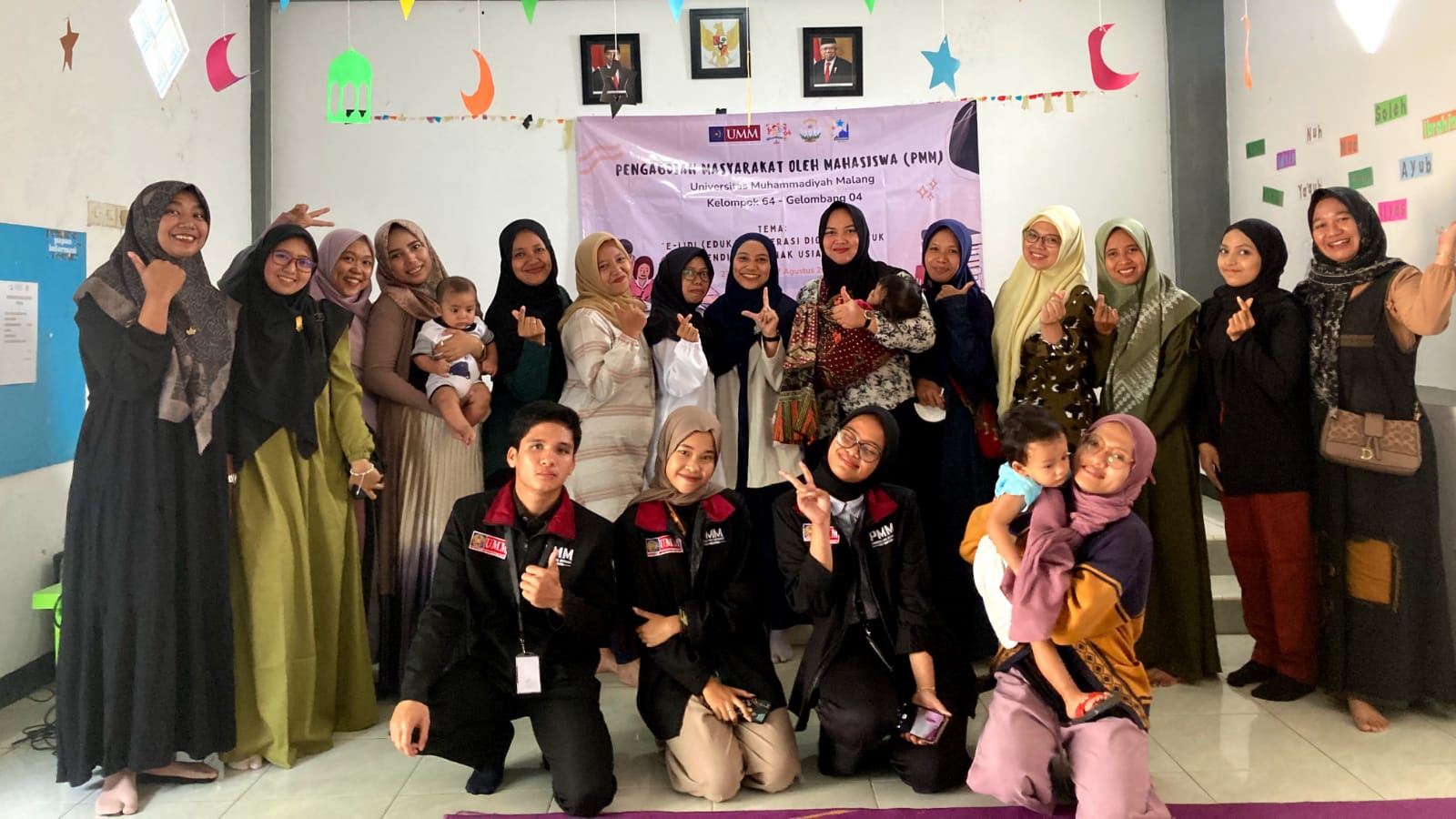
Malang, September 4 2023. In order to fill their free time during the even semester holidays, UMM Government Science Study Program students carried out a community service activity project by creating an innovative E-Lidi (Digital Literacy Education) program for early childhood. This innovation was initiated by four students from the class of 2020, namely Stevania Halim, Aisyah Firanti, Nabila Ratu Az Zahra and Vishnu Wardhana.
"We carry out this service activity in two places, namely at RA Syihabuddin Landungsari, Malang Regency and TK Kemala Bhayangkari 19 Pangkalan Bun, West Waringin Regency, Central Kalimantan. "Incidentally, I personally come from Central Kalimantan, so I can also carry out community service activities when I return home," said Vania as coordinator.
The target of the E-Lidi program itself is of course young children, parents and teachers. One of the service team members, Aisyah, explained that the aim of the innovative E-Lidi program is to introduce a culture of digital literacy to teachers and parents so that they can control children's gadget playing activities and educate them that reading activities are not only done in books but also in books. can be done via digital platforms.
"The hope is that children who are familiar with this gadget will not only focus on game applications or shows that can have a negative impact. "Rather, it can be directed at encouraging children's interest in reading and improving literacy culture from an early age," added Aisyah.
Vania revealed that the E-Lidi program was implemented through outreach activities for parents and teachers regarding the use of digital media for young children who need to be monitored and directed to platforms that can educate. Because, within society itself, there are still pros and cons when giving children the opportunity to play with gadgets.
"Therefore, for parents who agree to give gadgets to their children as a learning medium, digital literacy needs to be introduced. Because these children have a high curiosity. Meanwhile, it is feared that prohibiting or distancing children from digital media will actually increase children's curiosity. "In this way, introducing children to when and how to use gadgets will actually help children to use gadgets safely," said Vania.
Finally, one of the service team members, Nabila, said that this socialization also explained the role of the government, especially the Ministry of Education and Culture, in terms of Digital Literacy, namely through the existence of a Story Gallery which contains digital reading books for children which can be accessed via the link https:/ /paudpedia.kemdikbud.go.id/galeri-ceria/ruang-cerita. (van/roz)
